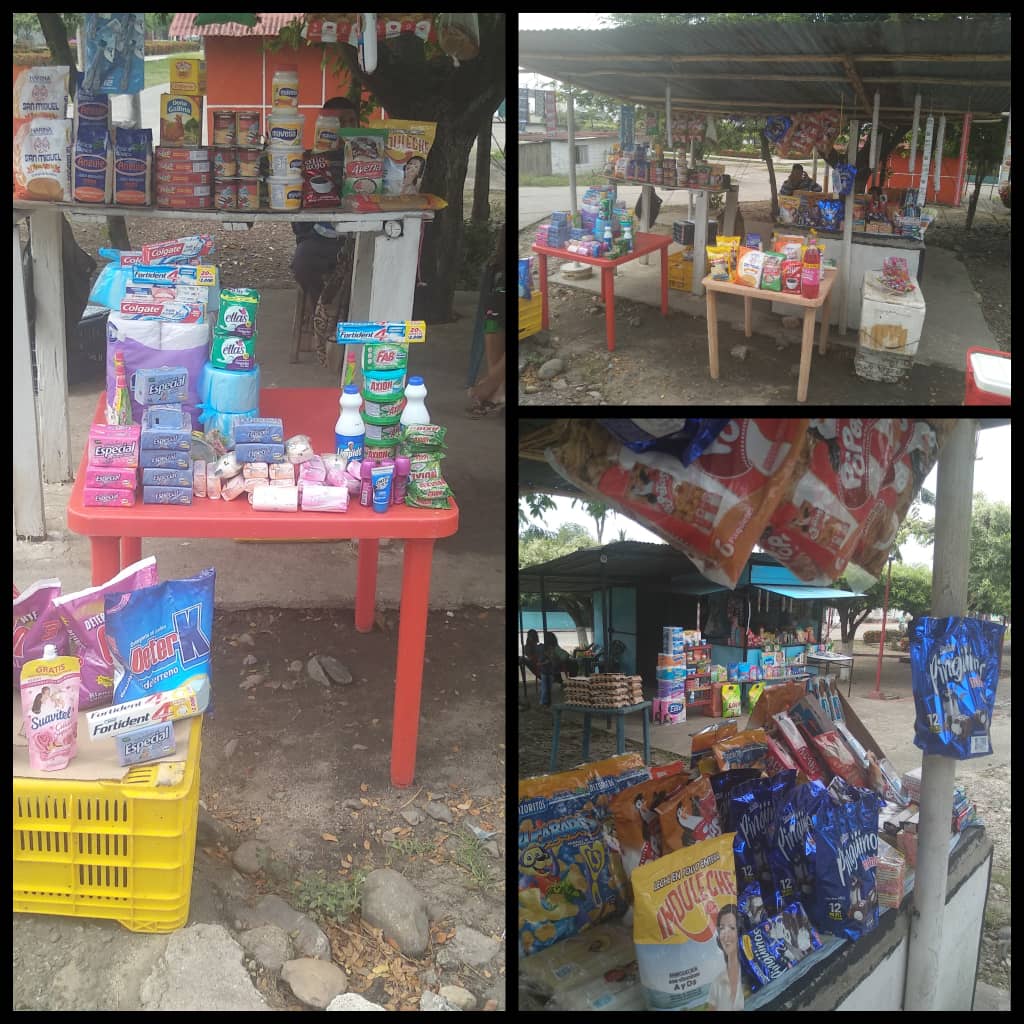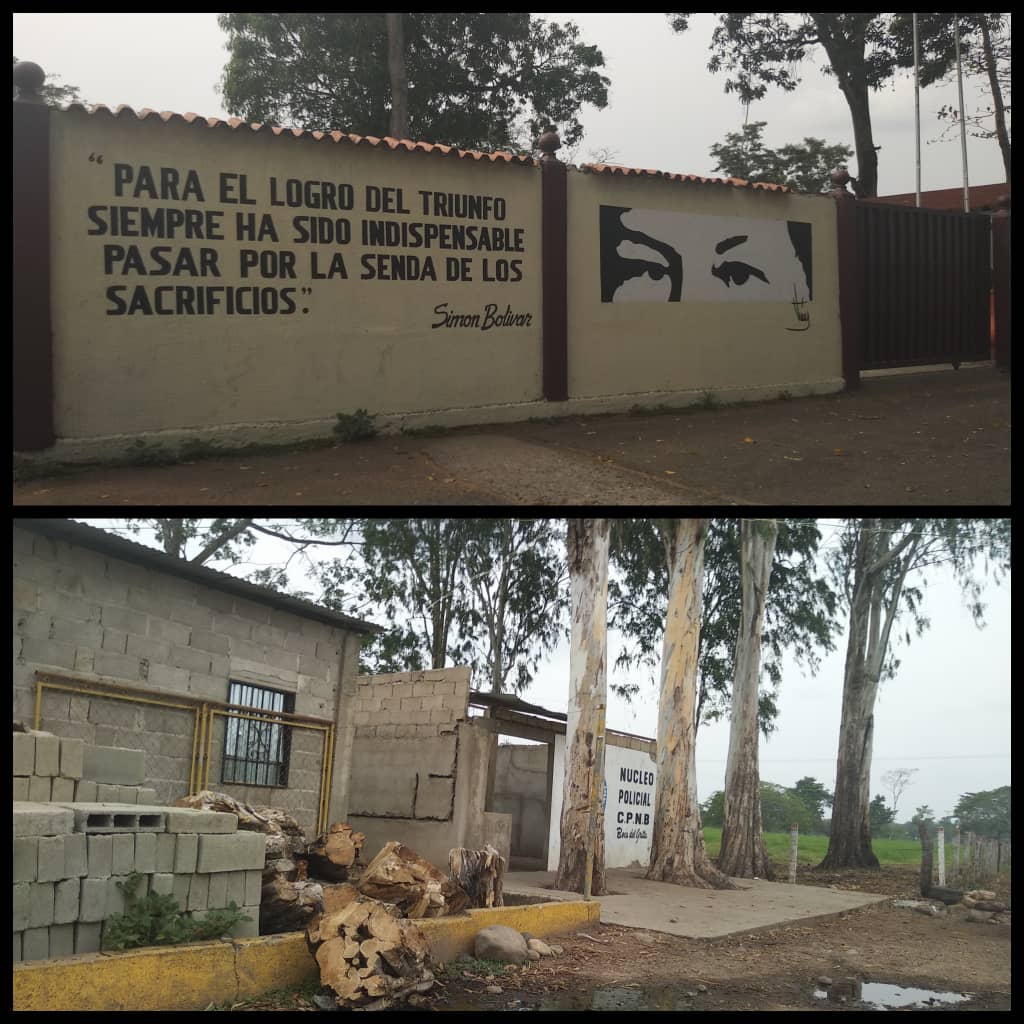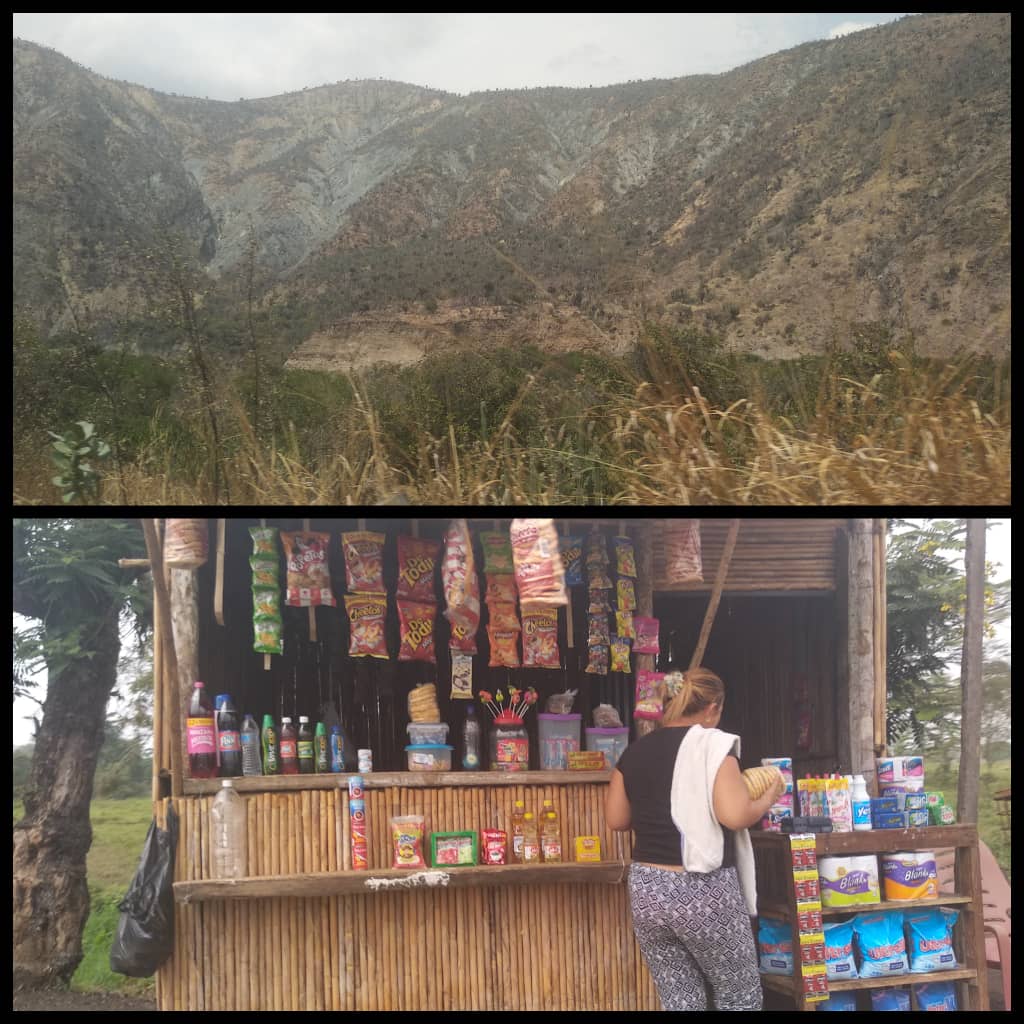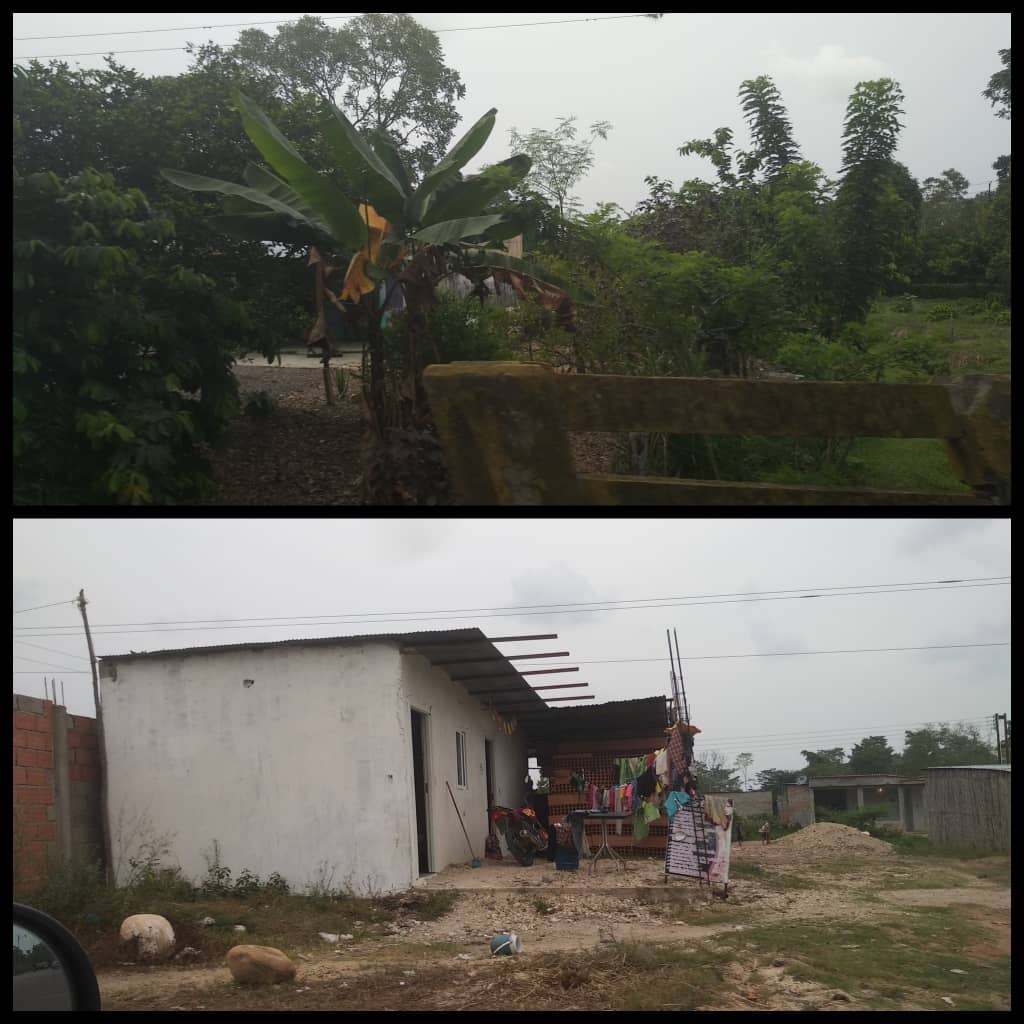Crossing the Border On Foot: From Paracoland to Narcoland
In the first Cucuta Chronicles dispatch, our intrepid reporters pretend to be married and face the bleak possibilities of separation and abduction, until they solve the situation and cross the border by the power of a couple of Andean pastries.


Photos by the authors.
“Don’t take pictures here, this is an area controlled by paracos,” said Elio, the 33-year-old taxi driver who offered to take us to Boca De Grita, the last Venezuelan checkpoint before arriving to Puerto de Santander, one of the key points of the Colombian-Venezuelan border. “Anyone can be a paraco (nickname for the extremely dangerous Colombian paramilitary) those guys sitting there watching and taking shifts from time to time are paracos. They keep security, order and law here. Nobody steals here, any thieves are rounded up and disappeared. If you don’t do anything, they leave you alone, but it’s better not to catch their attention, because they come in cars with tinted windows and make you get in to interrogate you,” he said as we arrived to some kind of giant open-air market.
Our trip from the Andean city of Merida took five hours, because we didn’t find tickets for those buses where entire families move daily to Cucuta to buy food, work or flee the country. The border is dominated by the Colombian economy. The territory around us is a succession of desolate moors with tents made of sticks and stones, where barefoot children sell smuggled merchandise, raw meat, some withered fruits and fuel. “Those over there are pimpineros,” said Elio. “Unlike the fuel sellers, they don’t smuggle fuel in car engines, but in plastic bottles.” He shrugged and averted his eyes when we asked him who controlled that contraband.

The territory around us is a succession of desolate moors with tents made of sticks and stones, where barefoot children sell smuggled merchandise, raw meat, some withered fruits and fuel.
Ten military checkpoints later, we arrived at Boca de Grita, a boiling town devoid of bolivars. Elio parked in the garage of a small house, along with a bunch of other cars. The air was filled with the mixed scent of used oil, gasoil, human sweat and the muddy smell of a dry river. There was no wind and the haze covered everything with a thin layer of dust. Boca de Grita only has one street, with brightly colored houses decorated with clay figures and Christmas lights. We asked a smuggler where we could spend the night to cross the border early the next morning: “Nobody stays here. Either you cross or you leave.”
We got out of the car, took our backpacks and twenty steps were enough to understand that we’d entered another dimension: Welcome to Paracoland. Boca de Grita is heavily monitored by the GNB and the paracos. Neither pictures nor video are allowed. Hundreds of people walk steadily, while others stroll around with haughty eyes. “This has been crazy. There’s more people than ever. Fortunately you got here late, earlier a guard dropped a tear gas canister by mistake. You have no idea: people running, frightened children,” an old man with a broad smile told us while holding a beer. The town is guarded by several GNB armored vehicles and water cannons, but they’re not actually the ones exerting tension in the area.
Elio warned us that we should cross the bridge as any other day, without looking at the guards, immigration agents or any other authority. Since we’d be there only for a short time, we wouldn’t need to get our passports sealed or show our entry cards. We thought this was too good to be true: the border with the heaviest immigration transit in the world is described as a summer Disney World attraction which you can visit with a FastPass+.

Elio warned us that we should cross the bridge as any other day, without looking at the guards, immigration agents or any other authority.
In fact, it’s common for people to cross without a passport if their stay is temporary. That’s why the Colombian immigration department implements a requisite called the Border Mobility Card. One of us has that card and the other has a passport. At the first Venezuelan checkpoint the problem was that one of us didn’t have the passport. At the last Colombian checkpoint the problem was that the other didn’t have the border card. We tried to cross a couple of times, disguised, pretending to be husband and wife, attempting to persuade the immigration officials: “I don’t know what your country requires for you to leave, but if you want to enter mine you need the border card or your sealed passport,” said the Colombian official. “If you keep treating me like a fool, I’m going to deport you and keep you here overnight.”
We returned to Boca de Grita but at 5:00 p.m. it was already impossible to stamp the passport. A line of 100 people, some of them surrounded by suitcases who were saying farewell to the country. Rocío (aka La Gorda) asked us for $20 to help us cross. Rocío had the magic ability to make you invisible, combined with a mischievous humor and a huge network of Colombian contacts in the area. She offered to take us through the river: “You won’t have any trouble there: the river reaches the ankles and paracos guide you through the path to the other side. They’ll want to keep her at night because she’s pretty, and no husband matters if the paracos want her.” We laughed together and paid her to take us through the bridge. Rocío took our backpacks and gave them to two people with Colombian IDs: a woman who’d just given birth and a cripple with a cheerful and serviceable spirit. Without suitcases, with different clothing and protected by La Gorda, we managed to cross to the other side.
The other side

We asked a smuggler where we could spend the night to cross the border early the next morning: “Nobody stays here. Either you cross or you leave.”
“Come mijo, come closer, we have the best women, the best substances, the best experiences. We have potions to find a husband, medicinal oils, poultices for aching bones, marijuana, rum and coke, extasis. Diapers for babies, toys, vaccines.”
Crossing to the other side of the border is a mixture of Mumbai, the Wild West and Mad Max. The stream of people is unstoppable, so colossal that it dragged us through a series of narrow, mottled streets solely devoted to illegal trade. Everyone here is criminal and survivor at once. The border is a lawless land, without politics or religion.
You can buy gold, cocoa, silver, used car batteries, mobile phones, canaimitas, computers and coffee. You can buy human hair, tires, copper, paper. People sell acetaminophen, amoxicillin, ibuprofen, soap, pasta, chocolates, cash, dollars, bolivars, euros, pesos, pounds, soles. Condoms, lollipops, pork skins, tequeños, hallacas, arepas, chorizo. You can find tickets to Bogota, Quito, Buenos Aires, Santiago, La Paz.
Here, immigration is just another business. Bus drivers find migrants and offer them the best routes, the best prices. At the Colombian side, tension drops, roads improve, the land is cultivated and there are no more cars from the past decade.

We got out of the car, took our backpacks and twenty steps were enough to understand that we’d entered another dimension: Welcome to Paracoland.
Once in the bus, mushed together with suitcases, children and people of various nationalities, we talked to Lino. Lino is 37 years old and he lives in Zulia with his wife and son, but he crosses the border every day to sell wool chairs. “I cross the border because no job is worth it in Venezuela. It’s tough: I miss my family and I’m always tired. But Colombia is now the best choice for many. Maduro took everything from us.”
Lino and I talked about the concert: “I’m going to the humanitarian aid concert, with my wife and my son. We have to help getting that in, because it’s going in: everything goes through the border.”
When we reached Cucuta, we sat, beaten, to have a beer at a brothel near our hotel. Our waitress was a sarcastic and extrovert blonde: “I’m also from Caracas! Of course I’m going to the concert. We should of course help get the humanitarian aid through, but also, Maluma will be there.”
Caracas Chronicles is 100% reader-supported.
We’ve been able to hang on for 22 years in one of the craziest media landscapes in the world. We’ve seen different media outlets in Venezuela (and abroad) closing shop, something we’re looking to avoid at all costs. Your collaboration goes a long way in helping us weather the storm.
Donate




